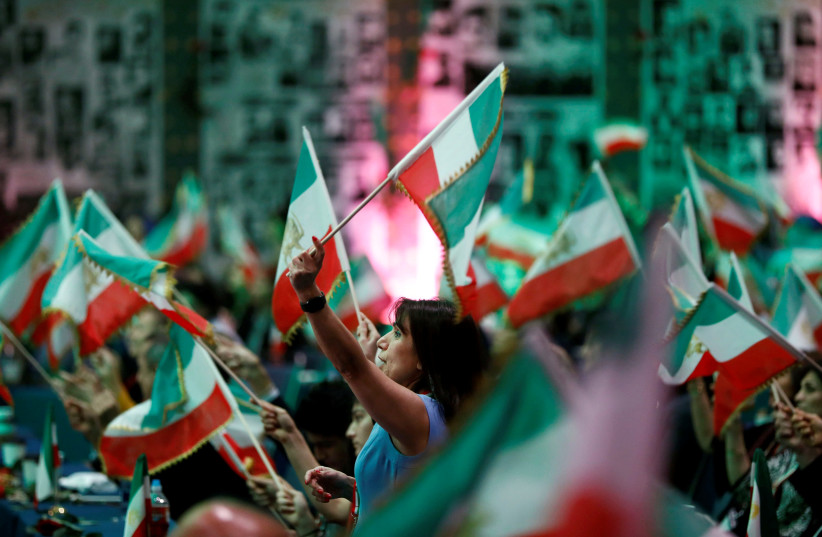 IDF intelligence: Iran at least two years from nuclear bomb
IDF intelligence: Iran at least two years from nuclear bomb
UDI SHAHAM
Officer says Tehran sees 2015 nuclear deal as only exit point from its severe situation.

Iran is at an unprecedented “low point” due to actions carried out by Israel and the US, but it has not stopped investing in its nuclear project, OC IDF Intelligence Maj.-Gen. Tamir Heiman said this week.
“In its current situation, Iran considers a nuclear deal the only way out of the crisis, and hence it is trying to go back to the deal it signed in 2015,” he said at a press briefing.
According to IDF estimates, it would take Iran about two years to build a bomb once it decides to do so.
Israel reportedly has launched a multitude of operations against Iran to undermine its nuclear program. An explosion at the Natanz uranium enrichment facility and the assassination in November of Iran’s top nuclear scientist, Mohsen Fakhrizadeh, were attributed to Israel in recent reports.
Israel has also worked closely with the US to impose crippling sanctions on Iran’s economy.
According to Heiman, Iran starts 2021 “battered, but on its feet,” and it hopes the new US administration will change its attitude toward it.
However, the first signs of this attitude are not promising for Tehran. On Sunday, President Joe Biden said the US would not lift sanctions on Iran unless it first stops enrichment of uranium.
The White House later clarified that Biden’s “position remains exactly what it has been, which is that if Iran comes into full compliance with its obligations under the JCPOA, the United States would do the same and then use that as a platform to build a larger and stronger agreement that also addresses other areas of concern.”
Traditionally, there are two main alliances in the region: the Shi’ites, led by Iran, which includes Syria, Lebanon, Iraq and Yemen; and the radical Sunnis, which includes Turkey, Qatar, Libya and other countries that left this pact over the years.
In 2020, a new regional alliance was formed that includes Israel, Saudi Arabia, the United Arab Emirates, Bahrain, Sudan, Morocco, Jordan and Egypt. This alliance of moderate Sunni countries and Israel is closer to the US and Europe, and it raises concerns and fears in Iran regarding the potential of more sanctions and pressure in the future.
In Iran, there are two main camps with a different attitude toward a nuclear agreement.
The so-called moderate camp, which includes President Hassan Rouhani, is willing to make concessions and prefers to reach a new agreement with the US as soon as possible to ease the economic crisis.
The conservative camp believes patience will reward the Islamic Republic in the long term. It opposes concessions and maintains that only if the US backtracks first will Iran change its attitude.
Israel, as well as the US and Europe, are waiting to see the outcome of Iran’s presidential election in June. Some experts believe Supreme Leader Ali Khamenei, who is closer in his ideas to the conservative camp, prefers a victory by the moderate camp.
e most important decisions on his own. This is why, according to experts, he would like to show the world a more moderate and open face that might lure the West to ease sanctions and at the same time help Iran advance toward a bomb.
Zawartość publikowanych artykułów i materiałów nie reprezentuje poglądów ani opinii Reunion’68,
ani też webmastera Blogu Reunion’68, chyba ze jest to wyraźnie zaznaczone.
Twoje uwagi, linki, własne artykuły lub wiadomości prześlij na adres:
webmaster@reunion68.com
